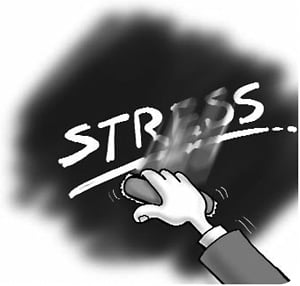 To maximize productivity in a time starved work environment, it helps to understand the workings of the brain. The prefrontal cortex is the part of the brain where complex planning and decision making takes place.
To maximize productivity in a time starved work environment, it helps to understand the workings of the brain. The prefrontal cortex is the part of the brain where complex planning and decision making takes place.
For the prefrontal cortex to operate properly it needs just the right amount of chemicals to create excitement and focus. Under-arousal happens when something is too boring and routine. Performance will falter with low levels of stress, while medium levels of stress (or excitement) can be just right. High levels of excitement will overwhelm.
Routine activity may cause us to operate by habit and the basal ganglia, the older lower -order part of the brain, takes over. When something is easy and requires little thought, you do it using a different part of the brain, the basal ganglia.
Add fear and urgency and you become more excited and focused and you engage the prefrontal cortex. Too much arousal and you overdo it. Neurons, which help cause this arousal, are not directly connected to each other. To communicate, neurons fire synapses that send and receive signal that tell us to do more or less.
Dopamine and norepinephrine cause the nerve firing. Norepinephrine is the chemistry of fear. It makes you more awake and aware. Dopamine is the chemistry of interest. Anything novel or unexpected causes the release of dopamine. Even something as simple as focusing on a positive future will increase dopamine. Norepinephrine and dopamine work together to keep you alert and at peak mental capacity. You can alter these chemicals in your body by imagining something fearful, thinking of something funny (dopamine) or imaging the future.
Often without being consciously aware of it, we're doing things that cause the release of these chemicals to keep us motivated. For instance, some people need to wait until the very last minute to complete a deadline because they need the stimulation of fear to motivate them.
If you're not alert, imagine yourself jumping in front of a bus and you'll be more alert. Excitement or fear heightens your alertness. If you're distracted, dopamine levels go down. Boost dopamine by imagining having a great meeting or a successful outcome. Just remember the prefrontal cortex needs just the right levels of arousal to be at peak performance.
I was a motivational speaker for an EMS Conference years ago where a guest speaker first introduced me to these concepts. Now I regularly do small mind tricks ( like imagining a future positive outcome) to keep me on track.

